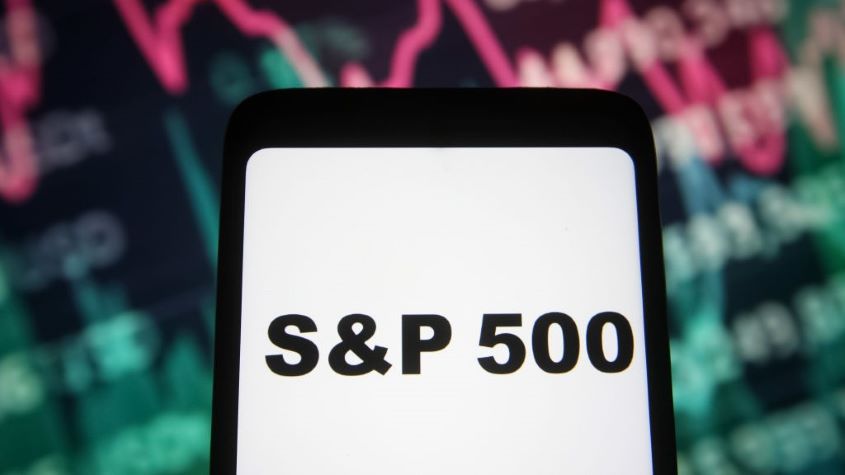Get the latest financial news, insights and expert analysis from our award-winning MoneyWeek team, to help you understand what really matters when it comes to your finances.
You are now subscribed
Your newsletter sign-up was successful
Want to add more newsletters?

Twice daily
MoneyWeek
Get the latest financial news, insights and expert analysis from our award-winning MoneyWeek team, to help you understand what really matters when it comes to your finances.

Four times a week
Look After My Bills
Sign up to our free money-saving newsletter, filled with the latest news and expert advice to help you find the best tips and deals for managing your bills. Start saving today!
Low volatility or "low vol" investing means buying shares (or bonds) that tend to go up or down in price by less than the overall market (in other words, they're less volatile).
In theory, low-volatility assets should deliver lower returns than highly volatile ones, because investors are supposed to demand extra rewards for taking extra risks. Yet in fact, studies show that low-vol stocks beat their higher-volatility peers over time. As a result, low vol has been marketed as a "factor" alongside value, small-cap and momentum investing that can help investors to beat markets over the long run.
Low vol has grown particularly popular in the wake of the 2008 financial crisis, after which the idea of being able to invest in "low-risk" assets and still beat the market became understandably attractive to jittery investors. The PowerShares S&P 500 Low Volatility exchange-traded fund now holds more than $7.4bn in assets under management, for example. As a result, some argue that the factor may no longer be as effective in the future.
MoneyWeek
Subscribe to MoneyWeek today and get your first six magazine issues absolutely FREE

Sign up to Money Morning
Don't miss the latest investment and personal finances news, market analysis, plus money-saving tips with our free twice-daily newsletter
Don't miss the latest investment and personal finances news, market analysis, plus money-saving tips with our free twice-daily newsletter
For example, Larry Swedroe has argued on ETF.com that one reason for low vol's outperformance is that, historically, low vol stocks have also been value stocks they've been cheap. Given the amount of money that has been drawn to the sector, that's no longer the case so it's possible that low vol will not outperform in the future.
Another concern about today's particularly calm investment environment is that many wider investment strategies now depend on volatility remaining low and falling in effect, many investors are "short volatility", whether they fully realise it or not. As a result, if volatility generally does pick up, then it could expose unexpected frailties in financial markets..
Get the latest financial news, insights and expert analysis from our award-winning MoneyWeek team, to help you understand what really matters when it comes to your finances.
MoneyWeek is written by a team of experienced and award-winning journalists, plus expert columnists. As well as daily digital news and features, MoneyWeek also publishes a weekly magazine, covering investing and personal finance. From share tips, pensions, gold to practical investment tips - we provide a round-up to help you make money and keep it.
-
 Should you buy an active ETF?
Should you buy an active ETF?ETFs are often mischaracterised as passive products, but they can be a convenient way to add active management to your portfolio
-
 Power up your pension before 5 April – easy ways to save before the tax year end
Power up your pension before 5 April – easy ways to save before the tax year endWith the end of the tax year looming, pension savers currently have a window to review and maximise what’s going into their retirement funds – we look at how
-
Index provider
Glossary Stockmarket indices such as the FTSE 100 play a huge role in investment. But where do they come from and who maintains them?
-
Currency risk
Glossary This is the type of risk that comes from the change in price of one currency against another...
-
Index fund
Glossary Index funds (also known as passive funds or "trackers") aim to track the performance of a particular index, such as the FTSE 100 or S&P 500.
-
Indices
Glossary There are indices for every sort of market, but retail investors are probably most familiar with those related to stock markets.
-
Q ratio
Glossary The Q ratio, or Tobin's Q, can be a reliable measure of stockmarket value.
-
 S&P 500 index
S&P 500 indexGlossary The S&P 500 index is one of the most widely tracked stock market indices in the world. Here’s a rundown of the index and why it’s so important
-
 Vix (volatility index)
Vix (volatility index)Glossary The Chicago Board Options Exchange (CBOE) Volatility index (Vix for short) reflects how volatile traders expect the market to be over the coming year.

